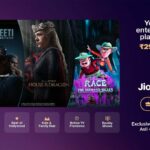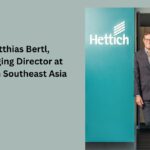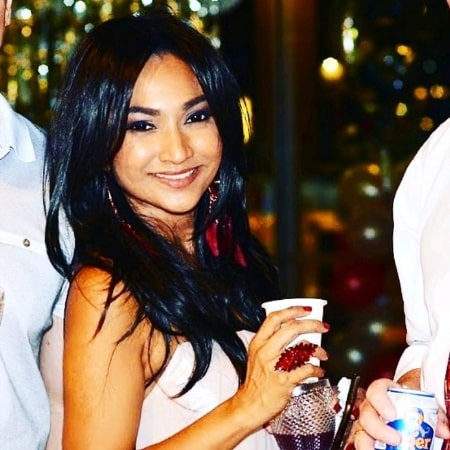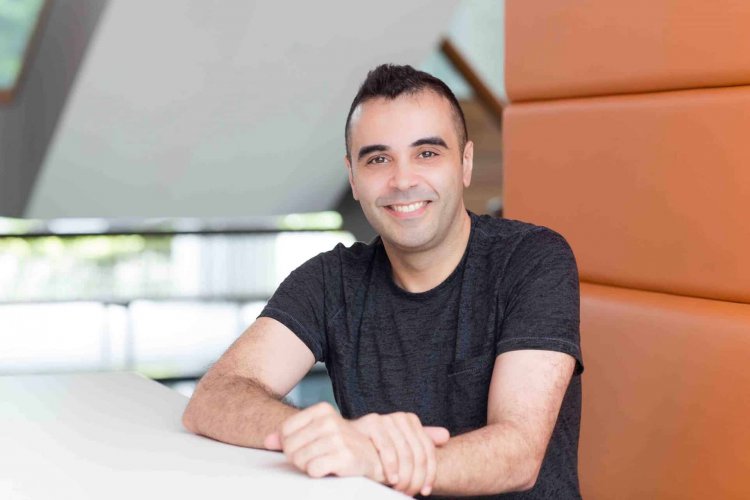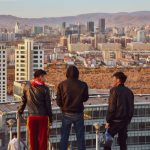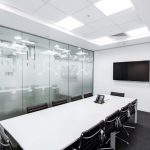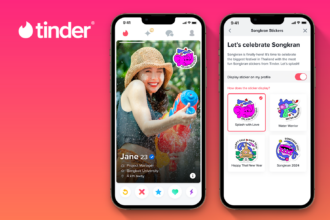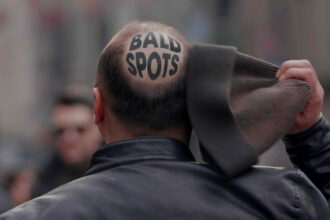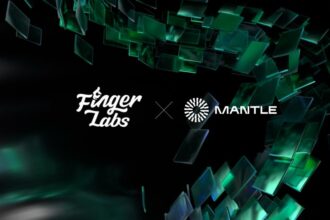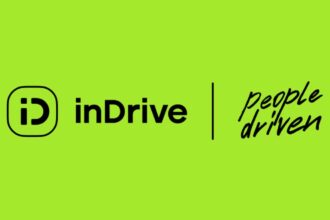Moe, you are a businessman, hotelier, restauranteur; you have done it all. Tell us about yourself.
I guess the best word to describe me is, entrepreneur. I am a naturally curious person, so this has led me into various industries over the years. I hope it will lead me to more. I was born and raised in America, the son of Egyptian working class immigrants. My father arrived in America with 18 dollars in his pocket and a dream to carve out a better life for himself and his family. His work ethic and his love for his family in many ways define me.
He was an incredibly successful man. I do not measure this in terms of wealth, as we were a working-class household, but in terms of building a strong family unit. He was a modest man that sacrificed everything for the education of his children.
He instilled in me the confidence to believe that anything was possible, so long as I worked for it. Growing up, I took nothing for granted. I still don’t. I worked hard. I still work hard.
I believe that anything worth doing is worth doing with passion. I also believe the best way to look at the world is thru a sceptic’s lens, as it keeps me grounded and hopefully able to spot gaps in the market. This is what fuels my entrepreneurial curiosity and leads me in new directions. I am a problem-solving, multi-tasking risk-taker who enjoys asking ‘why’.
I am also pretty certain that I have not yet done it all, and that bothers me. I can do more.
You moved to Singapore in 1999 and have been here since. Why Singapore?
I had the privilege of starting my career at Lazard, a Wall Street investment bank, where I was trained by some truly exceptional minds. I worked as a financial analyst, where I spent many years studying bankrupt companies. When the Asian Financial Crisis happened in the late 90s, I saw an opportunity to build a business to invest in troubled companies that needed fixing. I moved to Singapore because there was nobody here doing that business at the time. I was a year ahead of the competition. During this time, I built enough of a barrier to entry that discouraged many others from entering. I have been here ever since. Singapore is at home.
In 2005, you acquired 100% control over Bintan Lagoon Resort, a 500-room Indonesian resort. Tell us about that.
At the time, most people saw BLR as an expensive, poorly managed resort on a boring island called Bintan. I, however, saw a 750-acre beach paradise, within spitting distance of Singapore, that happened to have a resort on it. My mind exploded with the potential of this plot of land. So when the asset fell into bankruptcy, the fund I was managing bid on it and we acquired it. Overnight, I was no longer an ‘armchair’ analyst, but an operator managing a workforce of nearly 1,000 people. I had a blank slate to create something special.
My time at BLR was illuminating. Our list of accomplishments was tremendous. The turnaround was a raging success.
I have two key takeaways from this experience. First, the importance of a clearly articulated vision. It sets both the direction and culture of the business. Second, the importance of execution.
To arm myself with the skills I needed for my next venture, I enrolled and was accepted to Harvard Business School’s Owners & President’s Management Program, often referred to as OPM. I graduated from OPM in March 2019. It changed my life.
I read your interview in the Singapore Straits Times and cannot help but think to myself, what a visionary. What, in your opinion, make you such?
I spend a lot of time thinking about the future, what it will look like, and what I will look like in that future. More specifically, I now spend a lot of time thinking about the market in which I play, why and how I want to play in that market, and how that will give me a sustainable competitive advantage over the long-term. Having a competitive advantage simply means customers have a higher willingness to pay for my product or services versus the competition. Apple versus Samsung. Fatburger vs ‘the clown’ or ‘the king’. Nike versus Reebok. The list goes on.
It’s my honest belief that the only sustainable competitive edge any company has is the speed at which it innovates. It’s imperative to surround yourself by curious people who feel the same way. I am now working hard on doing this.
Tell us about Fatburger, the Hollywood famous burger chain that you brought from the States which is quite a sensation now in Singapore.
The trends are clear. People don’t want to put garbage into their bodies. They are becoming more discerning. They want fresh food. They want food cooked the way they like it. Over time, I see fast-food restaurants giving way to fast-casual restaurants. Unlike fast food, fast casual uses fresh ingredients and the food is cooked to order.
I also believe customers care about the experience. They want to eat at restaurants that are trendy and have a lively ambience.
Finally, the halal market is booming. 30% of all children born today are Muslim. There are over 1 billion halal consumers in the world. It’s a US$2 trillion market. 60% of all Muslims live in Southeast Asia. Whole Foods says halal is their fastest growing food category.
These are the strategic decisions we have made for Deelish Brands: 100% halal. Trendy fast-casual brands. Not yet in Southeast Asia.
Fatburger fits perfectly with our strategy. So it’s not only a combination of brand but strategy. We expect to bring more brands to Singapore with the same success.
Which one, in your opinion is more important when it comes to your businesses; marketing or branding, and why?
Branding, simply put, is a point of view. It answers the questions: what do you stand for and why do you do the things that you do. Marketing is all about getting that message out to the world. There’s no sense in marketing a point of view that’s not relevant, or that nobody cares about it.
Most new companies today spend a tremendous amount of time marketing a brand with no point of view. They are then surprised when the brand fails. It’s not about throwing money at the brand, it’s about having a brand that people understand and can get behind.
What drives you to do what you do, Moe?
Passion, fun, curiosity, challenge. I am so humbled in that the more I accomplish, and the more amazing people I meet on this journey, the more I realize that I know nothing. That’s a curse for a curious person. That’s my entrepreneurial curse but I wouldn’t trade it for anything. But I’d like to think I’m balanced. I have my father to thank for that.
Do you have any role models growing up?
The most amazing man I have ever met. My father. More recently, the members of my Harvard Business School living group. They are the most amazing collection of human beings from around the world. They have sparked a new fire in me that cannot be described with words.
What are your plans going forward?
In the words of Mike Tyson, “everyone has a plan until they get punched in the face!” So, I guess my plans are to continue to have a learning mindset. To approach every situation with an open mind. To continue asking why. To do my homework so that I know the right questions to ask. I hope that I get lucky enough to make a small difference in this world and on the people I meet along the way.
Where and how can you be contacted?
You can visit Deelish Brands’ website deelishbrands.com, my website moeibrahim.com or email me at moe@themozaic.com
Any parting words for our readers?
Every morning, when you wake up, before you reach for your phone and check your social media or your WhatsApp messages, ask yourself this question: “What do I want to accomplish today?” It will change your life.
